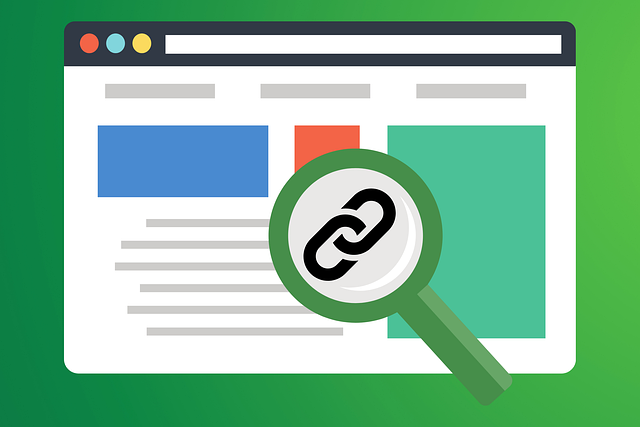In today's competitive e-commerce landscape, Local SEO is vital for connecting with local customers. Businesses can optimize their online presence through Google Business Profile claims, location keyword integration, and encouraging customer reviews, boosting visibility and fostering community engagement. Defining target audiences and optimizing geographic reach are crucial steps, along with maintaining consistent business information, structured data markup, and active social media engagement. Utilizing Google My Business (GMB) listings and building high-quality backlinks from local sources enhance online prominence. Strategically incorporating local keywords and creating content tailored to specific locations drives targeted traffic and increases brand relevance among nearby shoppers. Robust Technical SEO strategies and continuous measurement of KPIs are essential for successful Local SEO.
Local SEO is a powerful strategy for e-commerce businesses aiming to attract nearby customers. This article guides you through optimizing your online presence in your local market, ensuring potential clients can easily find and engage with your brand. We’ll explore key tactics like defining your target audience, website optimization, leveraging Google My Business, building relevant backlinks, using local keywords, creating location-specific content, implementing technical SEO best practices, and measuring success. By mastering Local SEO, e-commerce businesses can thrive by connecting with their local community.
Understanding Local SEO for E-commerce: Why It Matters

In the dynamic landscape of e-commerce, Local SEO stands as a powerful strategy to connect with customers in your immediate area. It’s more than just optimizing your online presence; it’s about ensuring your business is easily discoverable and relevant to local shoppers. With the rise of mobile search and targeted purchasing decisions, Local SEO becomes an indispensable tool for e-commerce businesses aiming to thrive in their communities.
Understanding your target audience’s needs and behaviors is key. Local SEO allows you to tailor your content and listings to reflect the unique characteristics of your region, whether it’s highlighting local products, offering personalized services, or participating in community events. By claiming and optimizing your Google Business Profile, implementing location-based keywords, and encouraging customer reviews, you can significantly enhance your visibility in local search results, driving targeted traffic and fostering a sense of community around your brand.
Defining Your Target Audience and Geographic Reach

Defining your target audience is a crucial step in any successful Local SEO strategy for e-commerce businesses. Understanding who your ideal customers are—their demographics, interests, and buying behaviors—enables you to tailor your marketing efforts precisely. This means creating content, offering promotions, and optimizing your online presence to resonate with these specific individuals within your target market. By knowing where your audience lives and shops, you can focus your Local SEO efforts on the geographic areas that matter most, ensuring your business is visible to those likely to convert.
Geographic reach is an essential component of Local SEO as it helps search engines understand the scope and limitations of your operations. Whether your e-commerce business serves a local neighborhood or spans multiple regions, clearly defining these boundaries allows search algorithms to accurately index and rank your site for relevant local queries. This involves optimizing your website’s metadata, creating location-specific landing pages, and claiming—or at least ensuring accurate information on—your Google Business Profile (GBP) listing.
Optimizing Your Website for Local Search Results

To optimize your website for local search results, ensure your business information is consistent and accurately listed across all online platforms. This includes updating your Google Business Profile with relevant details like address, operating hours, and service areas. Incorporate location-specific keywords into your website content, such as city names or neighborhood terms, to signal to search engines that your business caters to a local audience. Implement structured data markup for products and services, making it easier for search engines to understand your offerings and display them in localized results.
Additionally, focus on building high-quality backlinks from local, authoritative websites. Collaborate with local influencers or businesses for guest blogging opportunities or joint promotions. Engage actively on social media platforms, sharing content that resonates with your local community. Regularly review and update your website’s meta tags, headings, and descriptions to include relevant local keywords, enhancing both your search visibility and user experience.
Leveraging Google My Business for Enhanced Visibility

Google My Business (GMB) is a powerful tool for boosting your e-commerce store’s local SEO efforts. By claiming and optimizing your GMB listing, you increase your online visibility in search results and maps, making it easier for potential customers in your area to discover and engage with your business. This platform allows you to manage your business information across Google Search and Maps, ensuring accuracy and consistency.
Fill out your GMB profile completely, including a detailed description of your products or services, high-quality images, and relevant keywords. Encourage satisfied customers to leave reviews as positive feedback enhances your credibility and local search rankings. Regularly updating your GMB listing with new offers, events, and promotions also keeps your business at the forefront of local search results.
Building High-Quality, Relevant Backlinks from Local Sources

Building high-quality backlinks is an integral part of any successful Local SEO strategy, especially for e-commerce businesses aiming to boost their local visibility and attract more targeted traffic. When it comes to e-commerce, focusing on relevant and local links can significantly enhance your online presence. Collaborating with local influencers, industry partners, or community organizations to create valuable content can earn you genuine backlinks from reputable sources within your region.
Engaging in partnerships or collaborations that align with your brand’s values and target audience will not only provide opportunities for link-building but also foster a sense of community. Local events, online forums, and industry-specific directories are excellent resources to identify potential backlink sources. Ensure the backlinks you acquire are from sites that offer relevant content to your customers, as this strategy reinforces the local focus and improves the overall authority of your e-commerce platform in the eyes of search engines.
Utilizing Local Keywords Strategically Throughout Your Site

In the realm of Local SEO for e-commerce, strategically incorporating local keywords is a game-changer. These keywords, often tied to specific locations and services, play a pivotal role in enhancing your site’s visibility among geographically relevant searches. By seamlessly integrating them into your website content, product descriptions, meta tags, and even URLs, you signal to search engines that your business caters to a local audience. This approach not only improves your search rankings for area-specific queries but also fosters trust among potential customers who are actively searching for nearby solutions.
For instance, if you own a local bakery in New York City, keywords like “best bakeries in NYC” or “local cake delivery Manhattan” should be woven into your site’s fabric. This strategy ensures that when residents or visitors search for baking services within their area, your business appears as a top result. By understanding and employing these local SEO tactics, e-commerce businesses can effectively reach their target market, drive foot traffic (or digital clicks), and ultimately boost sales.
Creating Compelling, Location-Specific Content

Creating content tailored to your local audience is a powerful strategy within Local SEO for e-commerce businesses. Go beyond general product descriptions by weaving in the unique characteristics and attractions of your specific geographic location. For instance, if your online store specializes in outdoor gear, craft compelling content that highlights nearby hiking trails or scenic spots, enticing local adventurers. This not only draws in customers seeking relevant products but also establishes your brand as an authority within the local community.
Location-specific content can take many forms, from blog posts about local events to product pages featuring nearby landmarks. Incorporate keywords naturally, ensuring search engines understand the geographical focus of your material. By doing so, you enhance your e-commerce site’s visibility in local search results, making it easier for potential buyers within that area to discover and engage with your business.
Implementing Technical SEO Best Practices for Local Businesses

Implementing robust Technical SEO strategies is essential for local e-commerce businesses aiming to dominate their regional market. A crucial aspect involves optimizing site structure and navigation, ensuring that pages are easily accessible and indexed by search engines. This includes creating a hierarchical structure with clear category and product pages, as well as implementing a user-friendly URL system. For instance, using location-specific keywords in URLs can significantly enhance Local SEO efforts.
Additionally, local businesses should focus on securing and optimizing their Google Business Profile (formerly Google My Business). Accurate NAP (Name, Address, Phone number) consistency across the website and this profile is vital for local search rankings. Efficient sitemaps and XML sitemaps submission, along with implementing structured data markup, further aids search engines in understanding the content of your site, thereby improving visibility in Local SEO.
Measuring and Analyzing the Success of Your Local SEO Strategy

Measuring the success of your Local SEO strategy is a crucial step in understanding its effectiveness and making data-driven adjustments. Utilize analytics tools to track key performance indicators (KPIs) such as website traffic from local search queries, conversion rates, and click-through rates (CTRs). By monitoring these metrics, you can identify which aspects of your strategy are driving the most relevant visitors and conversions.
Regularly analyze search rankings for targeted local keywords to gauge your progress in securing higher positions on search engine result pages (SERPs). Additionally, pay close attention to customer reviews and ratings as they significantly influence local search rankings and potential customers’ trust in your e-commerce platform. Leverage this data to refine your content strategy, optimize product listings, and foster positive customer experiences, ensuring a continuous improvement cycle for your Local SEO efforts.
